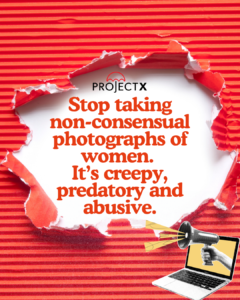Amnesty International recently came under fire for coming up with a draft policy that calls for the decriminalisation of sex work. In particular, many celebrities signed an open letter to ask Amnesty vote against decriminalisation (which is what sex workers globally are calling for). As such, the Global Network for Sex Work Projects (NSWP) has come up with a counter petition backed by sex workers themselves to support Amnesty in its decision. Since then, more more celebrities, activists, and International Organizations such as UNAIDS have come out to support Amnesty in it’s draft policy on decriminalisation.
Here is Empower Foundation’s (a sex worker organization based in Thailand) letter, backed by sex worker groups in the ASEAN region.
———————————————————————————————————————————————————-
Empower Foundation

Nonthaburi 11000, Thailand
Tel/Fax: +662-526-8311
Email: [email protected]
www.empowerfoundation.org
To Mr Salil Shetty, Secretary-General
Amnesty International Secretariat
1 Easton Street, London
WC1X 0DW, UK
[email protected]
7 August 2015
Dear Mr. Shetty,
In Support of Amnesty International’s “Draft Policy on Sex Workers’ Human Rights”
I am writing on behalf of Empower Foundation. Empower Foundation is a Thai sex worker organization with 30 years of experience promoting rights and opportunities for sex workers. Empower is a member of NSWP and our regional network APNSW. In addition Empower joins with 10 other sex worker organizations in our region in our project Sex Workers of ASEAN, these countries and their national sex worker organizations are listed below.
The ten Governments who make up the ASEAN Economic Community estimate there to be at least 1.2 million sex workers in our region. Sex workers of ASEAN have been organizing for full recognition of their human rights at National, Regional and International level for decades. One of the key steps in order for sex workers to assert their human rights is the decriminalization of sex work as outlined in Amnesty proposed policy.
We work in a range of sectors e.g. brothels, massage parlors, A Go Go, bath houses, Karaoke lounges, bars etc. Our legal environments are not the same. Some of us work in countries where religious law and practice is stronger than state law, some of us work on top of strict regulations, and most of us work on top of a mountain of criminal laws.
Our political, economic, social and cultural contexts are also diverse. Even though we do not share a common language, whenever sex workers of ASEAN have come together we share two common human rights abuses directly caused by corrupt police and stigma.
Buying and selling sex has been illegal for over 60 years in most of our countries but has not led to any reduction in sex work or an “end to prostitution”. The sex industry has grown faster than ever in the last 60 years. More importantly it has not led to better lives for sex workers or for our families. Criminalization has not led to increased human rights or reduced abuses; it has only led to more stigma and more real crimes. Law does not protect us but becomes a wall we must climb over to reach our human rights.
We need to get rid of the real crimes in sex work. The real crime in our work is not the buying and selling of sex, but rather the real crimes include, but are not limited to, the abuse of power by authorities, corruption, extortion, discrimination, violence with impunity, state neglect or our rights as workers, exploitation of our labor, denial of justice, arbitrary arrest detention and deportation, and entrapment.
Keeping our work criminalized means we cannot be treated as human beings but must be treated as criminals by society, including health workers, police and media. Our workplaces are not expected to be safe and healthy but must be treated as “dens of vice and crime” which do not need things like OH&S or even fire exits. Our employers are not expected to be responsible and fair employers but must be treated as “mafia figures” “pimps” and “traffickers” who do not need to worry about labor law, wages, health coverage or hours etc. Our customers are not expected to be respectful but must be treated as “abusers” and “exploiters” who do not need to pay properly or behave appropriately. Changing our status to “victim” is not an improvement. Experience has shown us that both criminal and victims must be kept in a cage; they cannot be free like other humans to make our own decisions and build our own futures.
Decriminalization of the sex industry means the real crimes in sex work can be addressed and ensures sex workers are able to better assert our human rights.
The human rights abuses that result from criminalization are not limited to a single country or region. This is a global human rights issue impacting tens of millions of sex workers therefore it makes sense that international human rights agencies should have a common global policy and position.
Amnesty International has a strong history of upholding the rights of marginalized groups. Amnesty has not been afraid to take the lead in standing against other laws even when that is unpopular. For example Amnesty has stood against laws that criminalize LGBTQI and reproductive rights e.g. safe abortion.
We congratulate Amnesty International for your sincere consultation with sex workers in drafting your policy supporting the urgent need for decriminalization of sex work.
We thank you for standing beside us and trust you will decide your policy based on evidence and the lived experience of sex workers.
Regards,
Chantawipa Apisuk
Director
Empower Foundation
Sex workers of ASEAN (SW-ASEAN)

Sex Workers of Cambodia Women’s Network for Unity
Sex Workers of Indonesia PKBI and OPSI
Sex Workers of Laos Sao Lao Empower
Sex Workers of Malaysia PAMT and CEO
Sex Workers of Myanmar AMA and SWiM
Sex Workers of Philippines Philippines Sex Worker Collective
Sex Workers of Singapore Project X
Sex Workers of Thailand MPlus and Empower Foundation
Sex Workers of Timor Leste Scarlet Collective Timor
Sex Workers of Vietnam Vietnam Sex Worker Network
—





